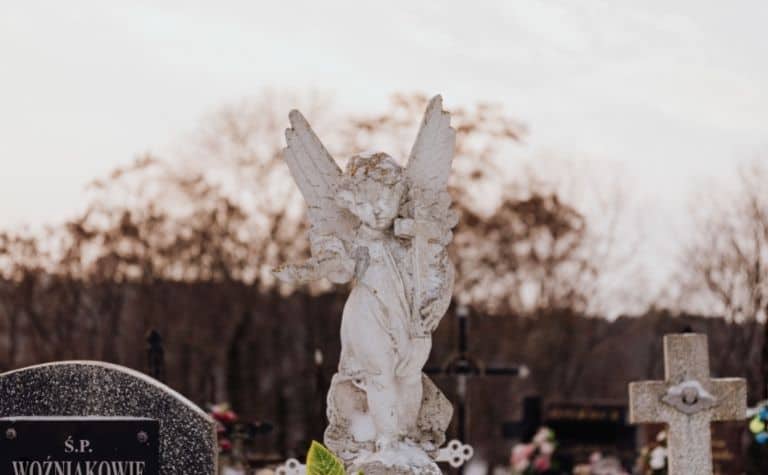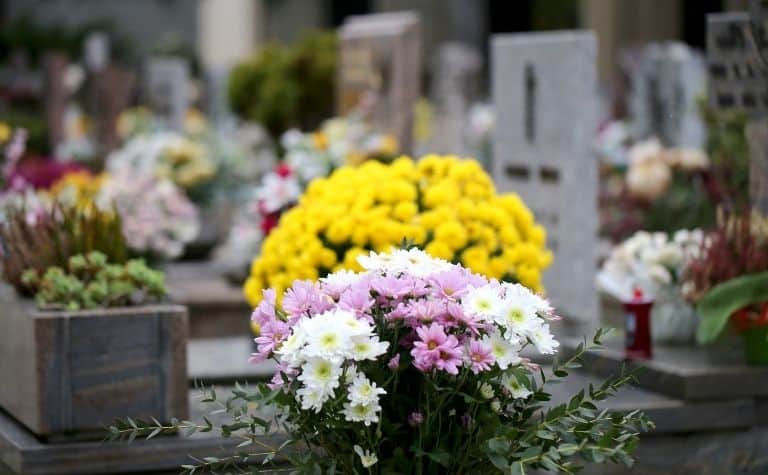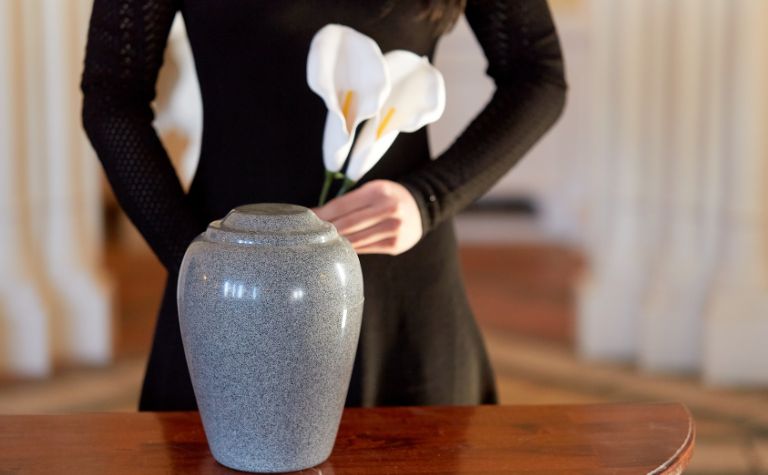The Bible has a lot to say about death, including how to ultimately overcome it. How do Methodists interpret Scripture’s teaching about death? How does it shape their beliefs?
Methodist theology has historically taught that death is the consequence of sin, and because every person has sinned, all will eventually die. However, Jesus Christ enables people to overcome their physical death. Those who do will go to heaven, and those who don’t will go to hell.
Why does sin lead to death, according to Methodist teaching? What do Methodists believe about heaven and hell? Do Methodists believe it’s okay to be cremated? Keep reading to learn more.
Also, see Methodist vs. Foursquare: What’s the Difference? to learn more.

What Do Methodists Believe About Heaven?
Methodists believe a person goes to heaven or hell when they die. In contrast to the Catholic church, Methodists don’t believe in purgatory. (Also see What Do Methodists Believe About Heaven?)
Physical and spiritual death is a consequence of sin (e.g., Rom. 6:23), so people must overcome sin to live forever with God in heaven and other believers. The death and resurrection of Jesus Christ overcome sin and death, which enables believers to have eternal life (e.g., John 3:16).
The founder of Methodism, John Wesley (1703-1791), was profoundly focused on heaven while he lived on earth. Heaven wasn’t simply a destination for Wesley, but it defined his life in that he lived in this world but lived for the next world. (Also see Do Methodists Believe in Predestination?)
The reality of heaven led Wesley to evangelize unbelievers, disciple believers, worship God in Spirit and Truth, and immerse himself in Scripture, “I want to know one thing, the way to heaven; how to land safe on that happy shore. God Himself has condescended to teach the way; for this end He came from heaven. He hath written it down in a book. Give me that book! At any price give me the Book of God!”
What do Methodists believe heaven will be like?
Historically, Methodists strive to build their doctrine of heaven and what it will be like, on the teachings of Scripture. (Also see What Bible Translation Do Methodists Read?)
While the Bible offers glimpses of heaven, it doesn’t offer readers a holistic, detailed image of what it will be like or look like. Like other Christians, Methodists acknowledge some mystery to heaven, but what is unknown will be just as wonderful as what is known.
Methodists’ beliefs about heaven
- There will be praise: People and angels will worship God for all eternity.
- There will be a community: People will be reunited with faithful family and friends.
- There will be healing: God will heal people of diseases and ailments.
- There will be a new dwelling place: People will live forever in a new heavens and new earth.

What Do Methodists Believe About Hell?
According to traditional Methodist teaching, people who reject the saving grace of Jesus Christ and the atonement he earned through his death and resurrection remain lost in their sin. (Also see Do Methodists Believe in the Trinity?)
Sin, according to the Bible, leads to eternal death. If a person doesn’t have the means to overcome sin, which morality and good works alone can’t do, they will die due to their sin. Hell is the place of eternal death.
How can a loving God send people to hell?
Some Methodists deny that hell is real, but their belief is contrary to the historical teachings of the Methodist tradition. Those who believe in hell don’t relish the doctrine; instead, they think it’s taught in Scripture and accept it as a sad but honest truth.
Strictly speaking, God doesn’t “send” someone to hell. Hell is the result of rejecting the eternal, life-saving work of Christ on the cross. God so badly doesn’t want people to go to hell that he sent his only son, Jesus Christ, so sinners can escape that fate and experience eternal life. (Also see Do Methodists Believe in Purgatory?)
John Wesley believed hell was real and that people should interpret the Bible’s description of it literally.
His belief in hell, in part, motivated his evangelistic and discipleship work, “Is it not common to say to a child, ‘Put your finger in that candle, can you bear it even for one minute?’ How then will you bear Hell-fire? Surely it would be torment enough to have the flesh burnt off from only one finger; what then will it be to have the whole body plunged into a lake of fire, burning with brimstone?
Methodists’ beliefs about hell
- Hell was made for Satan and demons: Unbelievers will not be the only ones judged and punished in hell.
- Hell is not a paradise for sinners: People in hell cannot maximize their sinful cravings through ongoing rebellion. They will be miserable, suffering, and isolated forever.
- Hell will experience the fullness of God’s wrath: Hell isn’t necessarily Godless in that people are left to do whatever they want. Instead, God’s presence is experienced through the outpouring of his wrath.

What Do Methodists Believe About Cremation?
Some Christians are adamantly opposed to cremation for different reasons, such as (1) burial better expresses a believer’s anticipation of future bodily resurrection, (2) cremation disrespects God’s creation of the person and their body, (3) cremation is the practice of non-Christians religions and churches shouldn’t adopt the practice, and (4) the Bible mentions cremation in a negative light (e.g., Genesis 38:24; Leviticus 20:14; 21:9; Joshua 7:25).
Christians who make this argument don’t believe that if a person’s body is cremated, they risk their salvation. Burial is considered a “best practice” for these Methodists, but repentance and faith in Jesus Christ determine their eternal destination.
Sometimes a person is not free to decide what happens to their body, like someone who dies in a fire, or plane crash, or during warfare. (Also see Do Methodists Celebrate Lent?)
The largest denomination in the tradition, the United Methodist Church, acknowledges there are two perspectives on this issue, “Some of those opposing cremation argue the body must not be cremated because at some future date the believer’s soul will be reunited with his or her body. Even some who do not hold the soul is separable from the body may express hesitancy to embrace cremation.”
The statement continues, “Still others, whatever their belief about soul and body, conclude that since cremation only does rapidly what nature will do also more slowly, cremation is acceptable.”
The UMC has come to the conclusion that since cremation isn’t a sin, then an individual to decide for themselves what will happen to their body at death.
“The United Methodist Church does not have a specific official statement that either endorses or condemns cremation. Instead, United Methodists leave this choice to individuals and families and provide resources within the official ritual (Service of Death and Resurrection) that refer to the possible use of an urn and the interment of ashes.” [3]
References:
[1] Source
[2] Source
[3] Source
Related Questions
There are many different kinds of Christian churches today. Some of them have the name "Methodist" or "Evangelical" in the title. Most people know that the terms describe Christian churches but are...
The Methodist and Baptist branches of Protestant Christianity have left indelible marks on the Western world. Not only have the traditions planted churches, but they have positively contributed to...
